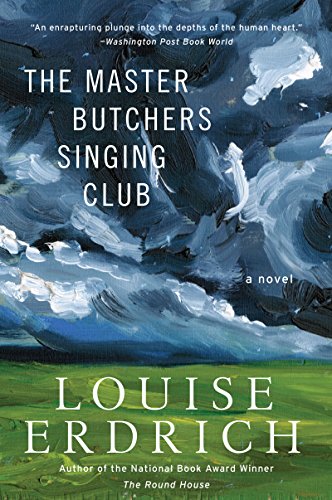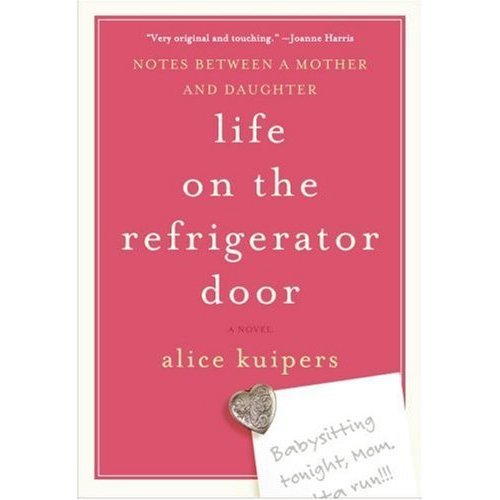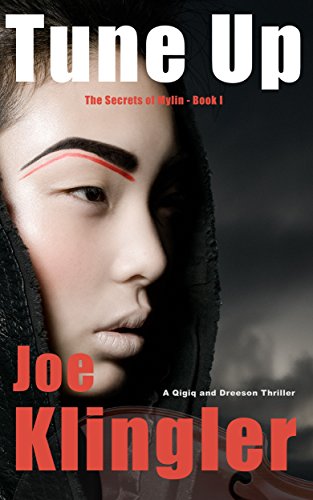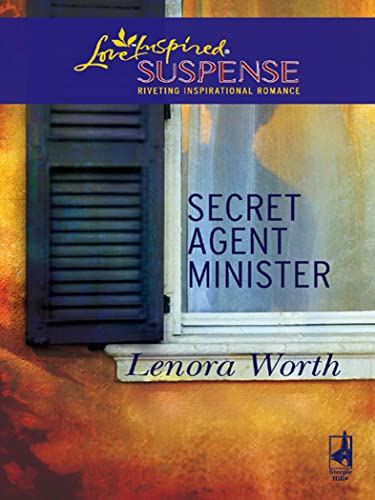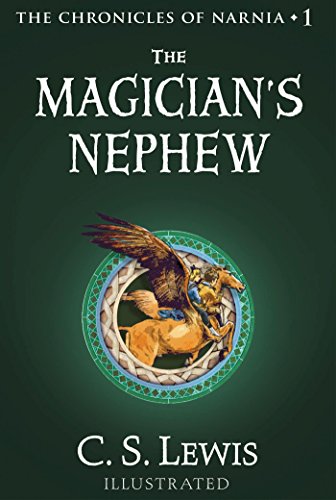January 1879
Hays City, Kansas
The pale winter sun cast milk shadows on the brick floor of Brad Randall’s jail cell. He had opened the wooden shutter to gain some fresh air. The draft was bracing cold, but at least offered a respite from the stale atmosphere of the coffin-like room that confined him. The remnants of dried urine and vomit from previous tenants seemed to live in the mortar between the bricks and endured despite weekly moppings.
Unfortunately, opening the shutter let in the unwelcome sounds from outside as well-the sawing and the hammering, the occasional shout of one workman to another. He did not need a reminder of what they were building-a gallows.
He ran his finger inside his collar to feel the tender flesh of his throat. What would it feel like? Would the drop through the trap door break his neck and kill him instantly? Or would he linger and jerk and slowly strangle while the hungry eyes of the onlookers watched with a mixture of horror and perverse pleasure?
How long would it take? How long before he slid into the peaceful void of oblivion, free from the burdens of thought and memory?
He had witnessed only a single public execution in his life. He had been working for the War Department in Washington City in the summer of 1865 when the conspirators to the Lincoln assassination were hung. Some of his office cohorts had received coveted passes to the event from General Winfield Hancock and invited him to come with them to see the hanging after lunch. He would regret eating so much that noon.
He had been twenty-one years old and curious. The July sun broiled the crowd of two hundred as they watched the prisoners, three men and one woman, bound at the wrists, knees, and ankles before hoods and then nooses were pulled over their heads. One of the condemned men complained about the adjustment of his noose. Randall and his young friends had made rude jokes at this ironic turn.
Their high spirits melted in the noonday heat when the platform finally dropped. They watched one prisoner jerk and fight for five full minutes before his body went still. His bound knees drew up nearly to his chest again and again, then his whole body quaked and shuddered. Five long minutes. It seemed like an hour. Had the man been conscious all that time or did his body alone instinctively fight against its fate?
Another of the hanged men pissed himself. Randall grimaced at this embarrassing reminder of the frailties and limitations of the human vessel.
The date of Brad Randall’s execution was set for noon the following Saturday. They chose a Saturday so that parents could bring their children to watch. No doubt the children would think they were attending a carnival or county fair. Entertainment of any fashion brought a welcome respite from the monotony and ceaseless labor of a prairie homestead. Vendors would probably stroll through such crowds plying the eager onlookers with refreshments and trinkets. Randall wondered if those children would be meaningfully improved by the lurid spectacle of his death.
He needed to write a letter to his own child. Four times he picked up the pen and four times he set it down again in frustration. He had to tell his son something. He could not let his only legacy to the boy be newspaper clippings. Frontier journalism was so tawdry-reporters seldom drew a line between fact, speculation, and editorial opinion.
But how could he explain to an eight-year-old boy with mere words on paper that he stood at this fearful precipice because of his love for a woman, a woman who was not his son’s mother? How could he possibly make the boy, whom he loved so dearly, understand the impossible complexities that added up to a single human life, his life?
His thoughts traveled back to the first day of September last, barely five months ago. It now seemed like another lifetime. The events of that day had set in motion much of what had brought him to this sorry pass.
* * *
September 1, 1878, Washington, D.C.
He had never once worried about the dangers of returning home from a business trip a day early, unannounced. He had heard the familiar jokes about such incidents, but had never stopped to consider that the jests might have been born of true-life experiences. As it turned out, he arrived only half a day early, but that was enough.
He had taken the evening train out of New York and fully intended to be in his own bed by midnight, but for the unplanned delay caused by the derailment of another train. The hours it took to clear the tracks caused him to arrive in Washington City at five in the morning.
He emerged from the dirty gloom of the railway station to savor the deliciously cool predawn air that heralded the coming of autumn. At this hour, even bustling New Jersey Avenue was comparatively tranquil. The inviting freshness of the breezes, as well as the fact that he carried only a small valise, convinced him to walk the sixteen blocks to his home, a comfortable townhouse located just north of Lafayette Square that his wife had inherited from her late father. How surprised Amanda and little Brad Jr. would be to have him arrive in time for breakfast when they did not expect him until supper.
He would not venture to his office at the Department of the Interior until noon to allow himself time to bathe and shave and rest up from the hot and exhausting night in the uncomfortable coach.
When he rounded the corner of his street he noticed a hansom cab sitting directly at the base of his front steps. His pace quickened. He feared the doctor had been summoned to his residence. Only six months had elapsed since the tragic death of his little daughter and the thought that some illness or accident might befall Brad Jr., his eight-year-old son and namesake, constantly tormented him.
Randall paused when he saw his front door open and the figure of a man emerge holding his hat in his hand and his top coat folded over his arm.
“Goodbye, my darling,” said the man in a cheerful voice that Randall instantly recognized to be that of Clarkson, his young assistant at the Bureau.
Clarkson leaned back in the door and kissed Amanda Randall on the lips, then turned and dashed, practically skipped, down the stone steps and disappeared into the waiting cab. The horse’s hooves made a loud clopping noise against the paving stones that echoed in the morning silence. With a pulse pounding louder in his ears than the clatter of the retreating horses, he glanced up to his doorstep to see his wife, attired in her dressing gown, gaily wave as the hack withdrew from sight, then turn and shut the door.
Randall dropped his valise onto the sidewalk and drew several deep breaths. Though only thirty-four years of age, he thought he might actually suffer a heart seizure and fall over dead, just as his father-in-law had done three years earlier in their parlor after consuming a large Thanksgiving dinner.
He leaned against a lamppost for support and realized he was perspiring despite the morning chill.
A passing dairy wagon startled Brad when it pulled up.
“Are you all right, Mr. Randall?” called the milkman as he jumped down from the driver’s seat and rounded his wagon to collect his milk tray.
He did not know the man’s name and so was mildly surprised to be addressed by his. He had to remind himself that, as a public figure often quoted in the newspapers, he was frequently recognized in the streets of the nation’s capital.
He drew himself up with a facade of recovered dignity. “Just fine, thank you.”
“Coming or going?” asked the milkman cheerily. He apparently planned to accompany Randall up the steps as he made his morning delivery.
Randall glanced uncertainly at his door. It seemed to retain a shadow of the image of his wife kissing his young assistant, Clarkson.
“Going.” He forced a polite smile and reversed his steps, heading now to his office. He would arrive there by at least seven and avoid seeing any of his staff, most particularly Clarkson. He would shut himself in his office and try to sort out his thoughts.
By the time he reached the large and imposing Doric edifice of the Patent Office on G Street which housed the Department of the Interior, clouds had gathered to spoil the fine morning. Thunder rumbled overhead and Randall took refuge under the eave of the entranceway just before the rain commenced. He hurried down the corridor and passed only a cleaning man sweeping the marble floor. The man courteously nodded in acknowledgement and was surprised that the young commissioner rushed by without his usual greeting.
Brad found the atmosphere in his office stale and stifling from his three days’ absence. He struggled to open one of the two operable windows that bracketed the large view window behind his desk. The dampness in the air had swelled the window frame, but with enough yanking, tapping, and cursing, the sash finally yielded.
The rush of cool air bathed his flushed face. The fresh smell of the morning rain mixed with the dust on the windowsill and created an unpleasantly musty odor. He sat down in his upholstered chair and surveyed his surroundings dispassionately.
His was a large and well-furnished office, befitting a man of his importance: Commissioner of the Bureau of Indian Affairs. The very title itself resonated consequence with its cadence of prepositions. The work had consumed him in recent months, offering him much-needed solace after the death of little Sarah.
Had his obsession with his career caused his wife to stray?
Damn it all! He would not blame himself for this. The fault was hers and no one else’s. How would he proceed?
A divorce?
The word made him shudder. Being an important man in this grand office carried with it not only a certain privilege, but also an unpleasant loss of privacy. The esteemed Commissioner of Indian Affairs suing his wife for divorce on grounds of adultery and naming as correspondent his own assistant-the press would dance with the story. His enemies in the War Department would feast on it.
He had barely been able to tolerate the news stories on his daughter’s death. It galled him to read them, no matter how solemnly and compassionately written, in the news section of the papers rather than the usual obituary listings.
Now to face this…this hideous and unseemly scandal. How could he shield his little son from it?
What if he did nothing and pretended ignorance? Could he go on living with Amanda?
Before he could fully digest this line of thought the little clock on his desk chimed 7:45. The sound of his subordinates arriving at their posts now distracted him.
With a cold stab of pain, he recognized Clarkson’s voice calling hello to their shared secretary, Mrs. Post. The icy sting melted instantly into fury. He rose from his desk, strode across the large office and peered out his door. Clarkson was no where to be seen, but plump Mrs. Post glanced up inquiringly from her pile of mail.
“Please send Mr. Clarkson in to see me at once,” he barked.
“Yes, sir. Uhm…is everything all right, Mr. Randall?”
“Yes, fine.” He closed the door before anyone else could see him. He realized from the look on Mrs. Post’s concerned face that he must appear a fright. He had not combed his hair, had not shaved, his clothes were rumpled from a night spent sitting on a miserably hot, stalled train. He must seem very far from the dapper and well-groomed young gentleman who usually occupied this grand office.
The moment he sat down, Clarkson rushed in, smiling, then looked slightly confused as he glanced at his superior’s disheveled appearance.
“Close the door behind you,” Randall said.
The young man did as he was told, then took a seat in one of the two chairs that faced the desk. “We didn’t expect you back so soon, sir.”
“No, I’m certain you didn’t.” He studied Clarkson’s slender, blandly handsome face. His slight build and medium height made him no physical match for his superior, who at six-four, towered over nearly all his associates. A decade earlier, Brad would have gladly looked forward to smashing in the impudent usurper’s face. At this stage in his life, however, he felt a violent outburst beneath his dignity, especially when he forced himself to image the newspaper headlines such an incident would spawn.
Clarkson smiled nervously under his supervisor’s scrutiny. Randall had previously liked the intelligent and witty young man. He was a Harvard graduate and had a fine career in public service to look forward to. Until now.
“Where was it you were born and raised, Clarkson? I don’t recall it.”
“A small town in western Ohio, sir. So small I doubt you’ve heard of it.”
“Well, urgent family business requires you return there immediately. At least, that is what you will tell everyone as you empty your desk and pack up your belongings.”
Clarkson frowned. Did guilt color the apprehension in his face? “I don’t understand-“
“I saw you leaving my house this morning. I saw you kissing my wife.”
Clarkson paled. “Oh, dear God. It’s…it’s not what you think.”
“It’s exactly what I think and we both know it.”
The young man’s Adam’s apple bobbed several times. Randall wondered what Amanda saw in him. He always thought Clarkson’s manner a trifle effeminate, though he had to admit that he was a popular figure with the ladies at social gatherings. He recalled seeing Clarkson surrounded by women on more than one occasion, and now that he thought about it, all those women clamoring for his attention had two things in common-all were married and all were a number of years Clarkson’s senior.
“I’m sorry. I’m so very sorry. We never meant to hurt you.”
“Don’t say ‘we’!” Randall shouted, breaking his promise to himself that he would not lose his composure. “Don’t ever speak of my wife and yourself as a couple!”
“No, sir. I’m sorry, sir.”
“In my own house! In front of my son!”
“Oh, no. Bradley Jr. was staying with your sister.”
Hearing Clarkson speak so glibly about his family caused Randall to grasp the edges of his desk as he fought the urge to attack his young associate.
Clarkson wet his lips and asked in a contrite whisper, “What are you going to do to me?”
“You deserve to be horsewhipped.” He was tempted to say, You deserve to spend the rest of your life with her. The wretched pair of you deserve each other. Instead, he said, “I’m firing you. Wasn’t that clear?”
“Yes.”
“Now, get out.”
Clarkson rose unsteadily.
“Wait.” A troubling new thought occurred to him. “Who else knows about this…this outrage?”
“No one, sir.” Clarkson’s tone turned groveling. “We-I mean, I-have been most discreet. I would never…I’m a gentleman, sir.”
“I don’t think a gentleman would seduce his employer’s wife.”
“No, sir. You’re right. There is no excuse-“
“No, there is no excuse. Now get out.”
Clarkson scurried for the door, but paused with his hand on the brass knob. He turned back, though he could not bring himself to make eye contact with the man he had so grievously wronged. “I cannot leave unless I have some assurance that Mrs. Randall will come to no harm on my account.”
This minute act of chivalry served to further enrage Brad with its implication. Only by forcing himself to imagine those awful newspaper headlines, did he resist the urge to grab the young betrayer’s skinny throat.
“It is none of your business, Clarkson, but I think you know that I am not a violent man.” His voice issued as cold as iron, his words seemed to clank.
“You must not think your wife cruel or wanton, sir. She was just lonely and I was a friend to her. I suppose we simply let our friendship go too far-“
“Get out of my sight!”
Clarkson was gone before the words stopped echoing in the large office. Randall hurried to the door and tersely advised Mrs. Post he was not to be disturbed by anyone, except, of course, the Secretary of the Interior. He then closed the door, turned the key in the lock, and returned to his desk. He watched the rain slap his windows and blur the view. He dropped back down into his chair as though his body weighed a thousand pounds and buried his face in his arms upon his large, cluttered desk.
He had not cried often in his life. He did not like the sensations it produced. Soon he wiped his face with his handkerchief and blew his nose.
He stared at the stack of correspondence that had accumulated during his absence. With little interest, he began to sort it into piles of various importance. He did not bother to read any of it until he came to the letter he had been expecting from the Secretary of the Interior.
The fact that their offices were situated only two floors apart in the same building and yet they felt the need to communicate only by written post spoke loudly to the professional difficulties between them. If their relations grew any more strained, Randall knew he would be looking for employment along with Clarkson.
After reading the contents of Secretary Carl Schurz’s letter, he grew furious, though he had not expected a different reply. Schurz had outlined the reasons for his disagreement with the Honorable Commissioner of Indian Affairs, Mr. Randall, on the subject of the relocation of the Northern Cheyenne tribe.
When the Northern Cheyennes surrendered at Fort Robinson in 1877, they were persuaded to relocate to the Indian Territory and live with their southern brethren. They had reluctantly agreed when promised the right to return to their homelands in the north if the relocation failed. The Secretary did not now feel inclined to acknowledge this promise in light of his insistence that the Bureau stay on budget for the next fiscal year.
The fact that the Cheyennes were starving, were not allowed to leave the reservation to hunt, were not given the promised rations, and were dying from malaria for which no quinine was made available apparently meant nothing to the esteemed Secretary. But, by God, they were on budget.
“Damn him and every bureaucrat in Washington City,” Randall said through gritted teeth as he shoved all his papers off his desk. Nothing in the Bureau had gone well since the convoluted election of ’76. Though he had been one of the few political appointments to survive the shameful scandals of the Grant administration, his future now looked as cloudy as the Washington sky.
He grabbed his file on the Northern Cheyenne situation and marched directly for the Secretary’s office.
“Is Mr. Schurz expecting you, Mr. Randall?” asked the small, mouse-like clerk whose desk sat in the receiving area of the Secretary’s large complex of offices.
“No, he is not.”
“I’m afraid that-”
Randall stormed past the clerk and entered his superior’s office unannounced.
“What’s this?” Schurz looked up from his desk, startled and irritated.
“What gives you the authority to condemn people to death?”
“Sit down, Randall, if you please.”
“I don’t feel like sitting.”
“Should I summon the security guards, sir?” asked the little clerk, peeking in.
“Leave us,” Schurz ordered and, more unflappable than his assistant, sat back in his chair. “I suppose this involves some damned Indian problem.”
“Given that I am the Commissioner of Indian Affairs, I suppose you are right.”
“No need for sarcasm, Randall. What’s the trouble?”
“Precisely why do you seek to undermine my decisions and policies in the matter of the relocation of the Northern Cheyennes-“
Schurz raised a hand to silence him. “I am your superior and I will have the final say in all matters involving this Department.”
“Allow me to read from a letter I received from a Lt. Lawton at Fort Reno,” Randall pressed on. “They-that is, the Northern Cheyennes-are not getting the supplies to prevent starvation. Many of their women and children are sick for want of food. The beef I saw given them was of very poor quality and would not have been considered merchantable for any use. On the subject of medical care, Lawton reports: The post surgeon frequently locks up his office because he has no quinine to administer to the Indians and does not wish them to continue to call upon him-“
Schurz interrupted, “Randall, you know that our appropriations are not sufficient to cover the stipulations of the various treaties-“
“Treaties whose terms we dictated and forced them to accept.”
“For God’s sake, man, lower your voice. Had your Bureau exercised the necessary economies-“
“These people are starving! I cannot manufacture food from stone.”
“Commissioner Randall, your job is to carry out my will. We have not seen eye-to-eye on virtually any policies since I took office. I am struggling to find a reason not to ask for your resignation.” He paused for a brief moment to sigh. “Bradley, sit down.”
Randall grudgingly did so. He studied the small, fifty-year-old man, an emigrant from Germany who had served in the U.S. Senate prior to his appointment. His passion was forestry, one of the many diverse spheres of the Interior Department’s wide purview. That the interests of the many sub-agencies frequently conflicted with the Bureau of Indian Affairs did not make Randall’s job any easier.
“Bradley, I have endeavored to make allowances for your-how shall I describe it?-acts of insubordination in these recent months.” Though Schurz had lived in the United States since his youth, his speech still bore the halting cadence of his native land. “I know that you and your dear wife suffered a lamentable tragedy, but at some point, my patience with you must expire. I would never tolerate such behavior from any of my other department heads. You, however, are the hardest working, most dedicated man on my staff. I would not easily lose you, despite our many differences of opinion.”
Randall shifted uncomfortably in his seat. He did not enjoy references made to his daughter’s death. He could not govern his present emotions well enough to formulate a reply to his superior. He knew well enough that Schurz, for all his immediate praise, did not personally like him owing to an altercation on the secretary’s very first day in office.
When Schurz was appointed to the cabinet by the newly elected President Hayes, he devised a test that all potential men in his employ had to take.
Randall had thought it impossibly demeaning to take a test like some schoolboy to retain his job when his own record of accomplishments as the youngest-ever Superintendent of Indian Affairs, and later Commissioner in the Bureau, should have spoken instead. He unfortunately voiced this opinion in the presence of not only the secretary, but members of the press as well.
The newly-appointed secretary had publicly opined that Randall was afraid to take the test. With gritted teeth, Randall sat for the detested exam and, as though for spite, scored higher than every other appointee by a large margin, forcing Schurz to keep him on his staff to save face.
Schurz pulled off the little pince-nez spectacles that clipped to the bridge of his nose.
“Bradley, you are a very bright young man with an excellent career ahead of you. I hate to see you throw it all away over some misplaced sentimentality for a few Indians. I want you to carefully consider your position here. If you choose to come to this office tomorrow morning with an apology and renewed resolve to carry out the policies of this department, that is to say, my policies, then I will reconsider your future on my staff.”
Randall stood up and for several seconds thought over what had just transpired as the Secretary pretended attention to his paperwork. Without a word, he returned to his own office, moving slowly, as in a dream.
Once safely ensconced, Randall resumed his vigil at his desk with his large chair turned to face the view window. The rain had stopped and the sun had returned; the afternoon air was stifling.
He idly watched the workers who labored to construct a new wing for the office building across the street that housed the Department of Education. The site hummed with activity as the laborers swarmed about, laying brick, carrying hod, over and over in endless repetition. Most were Irish immigrants, potato famine refugees.
How simple their lives must be, he mused. Go to work, do your job-a strenuous job, to be sure, but one without much ponderous thought-then return to your home each night to eat and sleep, perhaps make love to your wife, then rise tomorrow and begin it all again.
And what would he do tomorrow? Apologize…and betray his principles? Or resign?
Mrs. Post tapped on his door and poked her head in. “Mr. Randall? The afternoon mail has arrived. I’ve opened it for you.”
He did not turn to receive her, but continued to gaze out the window, transfixed by the workers building the new wing.
“Mrs. Post, have you ever felt shipwrecked?”
She placed the mail on his desk. “Excuse me?”
“Did you ever feel as though your life were shipwrecked and you were left alone in the ocean, clinging to a piece of wreckage, with no rescue in sight? Just floating out there, no ships on the horizon, no tropical paradise beckoning. The question would arise, How long would you hang on? At what point would you simply let go?”
“Are you feeling all right, Mr. Randall? You’ve looked tired all day.”
When he failed to answer, she quietly withdrew. He thought about the teaching posts he had been offered by several universities after his treatise on the Cheyenne language and culture had been published two years earlier. He wondered where he had filed those letters and began to look for them when he heard a commotion outside his door.
“I need to speak with Captain Randall,” came a man’s voice.
Randall winced at the title “Captain.” He knew that many used it as a sign of respect, but he preferred not to be reminded of his days in the military.
“I’m sorry, sir,” replied the redoubtable Mrs. Post. “He is very busy. Perhaps if you would make an appointment and come back tomorrow.”
Randall smiled at Mrs. Post’s placid ability to handle every situation. A fifty-year-old widow, she had been employed in the Bureau longer than anyone. She had been hired during the War years when the government was forced to hire women to fill the clerical posts vacated by the men who returned to their homes in nearby Virginia to join the ranks of the Confederacy.
“I need to catch a four o’clock train,” said the visitor. “I was so hoping to meet the Captain and speak with him in person.”
“Perhaps one of the Commissioner’s assistants could help you, sir.”
“No, the matter concerns a woman of Captain Randall’s acquaintance of some years ago. When he served on the frontier under General Custer. He is really the only one….”
Randall listened more intently now. He was curious about the man’s reference, though still not anxious to receive him.
“If you could but inform Captain Randall that I come seeking information about a woman named Eden Murdoch, I’m sure that he would make time to see me.”
Eden Murdoch! He had not heard that name spoken in nearly a decade and yet not a day had gone by in all those years that he had not thought of her.
Randall rushed to the door and opened it to see a young Army officer, a major in the infantry by his uniform, standing before Mrs. Post.
“Come in at once, Major.”


